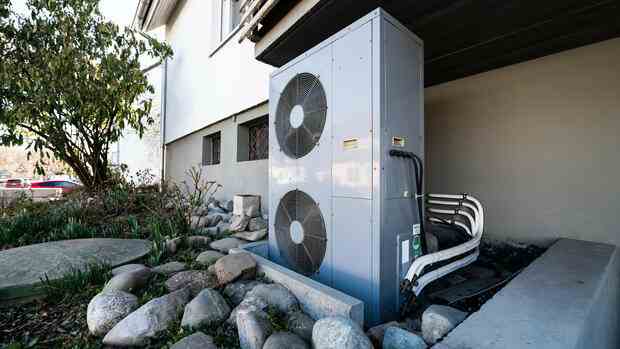In future, heat pumps should be installed in most heating exchanges in Germany.
(Photo: dpa)
For the public it seems like a coup with a dash of arbitrariness: from 2024, every newly installed heating system must be operated on the basis of 65 percent renewable energies.
In concrete terms, this means that from the coming year, anyone buying a new heating system will no longer simply be able to choose between gas or oil heating.
If district heating or wood pellet heating is not an option, an electrically operated heat pump must be used. Either as sole heating or at least as a supplement to gas or oil heating.
At least that is what a draft bill that recently went public is foreseen. For the first time, the Ministry of Economics and Building specifically wrote down how the Building Energy Act should be changed in order to implement the ban on pure gas and oil heating from next year.
What followed was a veritable wave of outrage: the FDP warned that the building sector could not be made “climate-friendly” with a crowbar – the party would not agree to such a draft. And the Bavarian Prime Minister Markus Söder (CSU) described “Habeck’s plans” as an “attack on the middle class and socially disadvantaged”.
As loud as the criticism is, it is also dishonest: Yes, it is true that the 65 percent law provides for a tough cut. New heat pumps are expensive, and tradesmen who are familiar with them are rare.
But what the opposition and FDP call “Habeck’s plans” and “crowbar” has long been cross-party plans. The 65 percent rule is already included as a project in the coalition agreement, which the FDP also signed.
The previous government under the CDU and SPD had already recognized the need. The Climate Protection Act passed by the Bundestag stipulates that all areas in Germany – including the building sector – should be climate-neutral by 2045. This can hardly succeed if heating systems that burn gas or oil continue to be installed and, in case of doubt, remain in the houses for 20 years. The draft bill that is now available only implements what has to come anyway.
More: This is what real estate owners will be faced with in 2024: how exactly the 65 percent rule is to be understood
